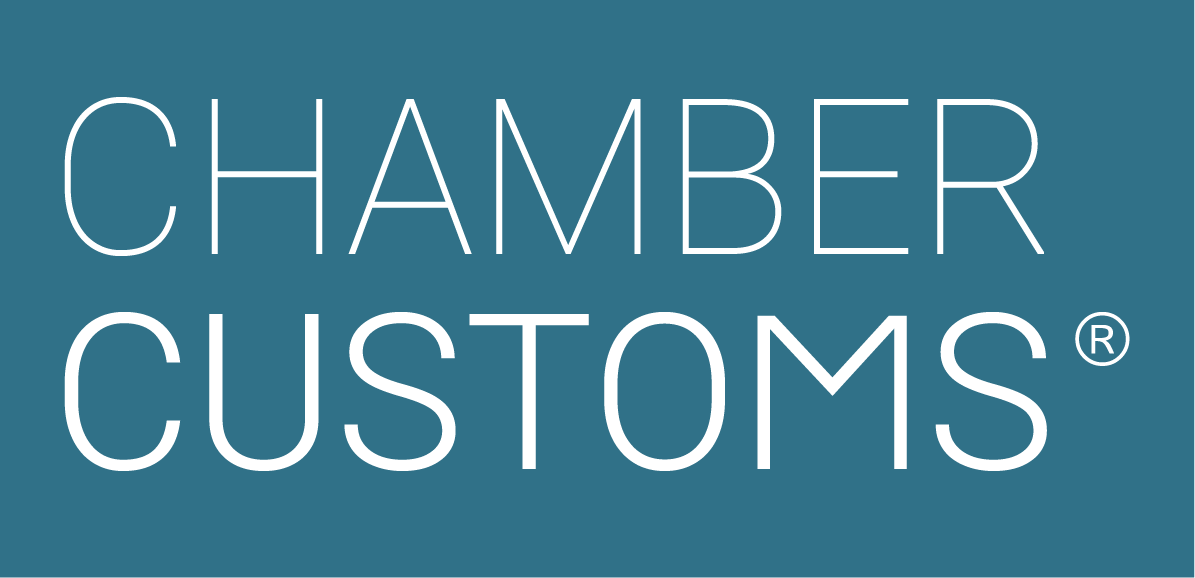EU CBAM for Importers and Exporters - CBAM Consultant
What is CBAM?
The Carbon Border Adjustment Mechanism (CBAM), developed by the European Union (EU), is a policy to prevent carbon leakage and encourage greener practices globally. It imposes a carbon price on imports to ensure that goods entering the EU face similar carbon costs as those produced within the EU.
At ChamberCustoms, we offer tailored CBAM consultancy services to help businesses navigate the complexities of compliance. Our team can assist your business with calculating emissions, managing reporting, and ensuring you remain compliant with the latest regulations. Depending on your needs, we provide both on-site and remote consultancy services.
The Purpose of CBAM
Prevent Carbon Leakage: Carbon leakage occurs when companies relocate production to countries with lower environmental standards to avoid carbon costs or when EU products get replaced by more carbon-intensive imports, undermining efforts to reduce emissions. CBAM helps to prevent this by imposing equivalent carbon costs on imported goods, ensuring fair competition between domestic and international producers.
Promote Global Carbon Reduction: CBAM encourages other countries to adopt greener manufacturing practices to remain competitive in the EU market by imposing a carbon price on imports.
How Does CBAM Work?
Scope:
CBAM applies to specific sectors with high carbon emissions, including:
Iron and steel, Cement, Aluminium, Fertilisers, Electricity and Hydrogen.
Calculation:
EU importers must report the carbon emissions embedded in the goods they bring into the EU. From 2026, which will mark the start of the CBAM definitive phase, they will be required to purchase CBAM certificates to cover the carbon price that would have been paid if the goods had been produced under the EU’s Emissions Trading System (EU ETS). If the carbon price in the country of origin is lower, the importer must make up the difference by purchasing additional certificates.
On the other hand, UK exporters are responsible for providing accurate carbon emissions data to their EU importers to facilitate this process. The EU importer will then purchase the CBAM certificates based on this data.
Compliance:
During the CBAM transitional phase, which will last until the end of 2025, EU importers must submit quarterly CBAM reports to the European Commission. As part of these reports, they need to provide data on the carbon footprint of their imported CBAM goods and on any carbon price already paid in the country of origin. This data will be subject to mandatory verification during the definitive period.
As the financial obligations start to be phased in, EU importers will have to purchase CBAM certificates to offset the embedded emissions of their imports that were not subject to a carbon price in the country of origin.
How to Calculate CBAM
As an exporter to the EU or a producer of a precursor CBAM good, you may need to calculate the embedded carbon emissions in your products by assessing both direct and indirect emissions.
Direct emissions come from production processes of goods including emissions from the production of heating and cooling, while indirect emissions are associated with the electricity during those processes.
Any carbon price already paid throughout the supply chain is also considered.
ChamberCustoms offers expert assistance to ensure that your carbon emissions are properly calculated and that you comply with the EU CBAM requirements.
CBAM - The Impact on Importers and Exporters
Importing into the EU:
Importers will need to account for the carbon content of their imported products, which may result in higher costs and increased administrative burdens. Compliance with CBAM will require verified carbon data, and failure to comply can result in penalties.
UK Exporters:
UK exporters are responsible for providing the necessary data to their EU importers. This commercial responsibility includes, but is not limited to:
Engage with Suppliers: Importers and exporters need to gather accurate emissions data from their suppliers and ensure that emissions across multiple stages of production are recorded. UK exporters need to ensure their EU importers have the data required to meet CBAM compliance requirements.
Product Details and Commodity Codes: UK exporters must provide product information, including the Combined Nomenclature (CN) codes.
Production Routes: Exporters need to outline the production routes of the goods, detailing the processes involved.
Emissions Data: UK exporters must provide accurate emissions data in tonnes of CO2 equivalent. This includes both direct emissions from production and indirect emissions from energy sources.
Failure to provide accurate data could negatively impact relationships with EU buyers and hinder market access.
CBAM Implementation Timeline
The EU CBAM is being gradually implemented. The initial CBAM reporting requirements began in 2023, requiring importers to collect and report emissions data for their imported goods. Starting in July 2024, importers must use actual emissions data wherever possible, replacing default values. For complex goods, at least 80% of the emissions data should be based on actual measurements.
Full implementation, including the purchase of CBAM certificates, is expected by 2026. This phased approach allows businesses time to adapt to the new compliance requirements while gradually increasing the accuracy of emissions reporting.
The Benefits of CBAM
Environmental: CBAM supports global efforts to reduce greenhouse gas emissions, helping to mitigate climate change.
Economic: CBAM ensures fair competition between EU and non-EU producers by levelling the carbon cost playing field.
Innovation: The mechanism encourages green technological advancements and investments in low-carbon technologies globally.
CBAM Challenges
Complexity: Calculating and verifying carbon content can be challenging, especially for businesses with complex supply chains.
Trade Relations: There is potential for trade disputes as some non-EU countries may view CBAM as a protectionist measure. Businesses exporting to the EU must prepare to comply with the regulations.
The CBAM Supply Chain
The CBAM supply chain tracks the carbon emissions generated during multiple stages of a product's processing lifecycle. This includes emissions from the raw material processing, manufacturing, and other steps directly involved in producing the final product.
To comply with CBAM, both direct and indirect emissions must be accounted for:
Direct Emissions: These are emissions produced directly from the production process, such as from fuel combustion in machinery or chemical reactions during manufacturing.
Indirect Emissions: These come from the production of electricity, which is consumed during the production process regardless of the location of its production.
Importers and exporters need to gather emissions data from these stages, ensuring that both direct emissions from on-site activities and indirect emissions from electricity consumption are accurately measured and reported.
Sustainable Supply Chain Management in the Context of CBAM
Although sustainable practices aren't mandatory under the current CBAM regulations, they help UK exporters remain competitive by reducing carbon footprints and emissions-related costs. As UK CBAM legislation is expected to follow, preparing now could provide a further advantage.
Key strategies include:
Reduce Carbon Footprint: Businesses are encouraged to implement energy-efficient processes, source materials from suppliers with lower carbon footprints, and invest in renewable energy to reduce their overall carbon footprint.
Transparent Reporting: Maintain accurate and transparent records of emissions data throughout the supply chain.
By integrating sustainable practices into supply chain management, importers and exporters can more effectively comply with CBAM, gain a competitive edge, and contribute to global carbon reduction efforts.
Ongoing Support for CBAM Compliance
CBAM compliance is an ongoing process that requires regular monitoring and updates to ensure your business meets the evolving regulations. At ChamberCustoms, we provide expert guidance to help companies remain compliant while minimising the administrative burden.
ChamberCustoms CBAM Consultant Package Includes:
On-site or Remote Support: An expert from ChamberCustoms will visit your premises or work remotely with your team to help assess your production processes, measure the carbon impact of each stage, and accurately apportion emissions to the correct products.
Tailored Monitoring and Reporting: We work with you to develop a CBAM monitoring and reporting system, ensuring you provide accurate, precise emissions data to your EU customers.
Boundaries and Precursors: We will identify which goods are in scope for CBAM and help you define the boundaries and precursors of your production process to ensure all emissions are correctly accounted for.
Data Collection and Emission Apportioning: We support you in collecting direct and indirect emissions data and ensuring emissions are apportioned to the appropriate reporting periods.
Software Solutions: We use specialist software to manage and calculate your emissions data. After the first year, you can either continue working with us to manage your reporting, or we can provide access to the software so that you can manage the data in-house.
Benefits of ChamberCustoms' Support:
Provide your EU customers with the information they need to comply with CBAM, reducing their hassle when importing UK products.
Identify areas for emissions reduction, making your products more competitive by lowering carbon costs in the EU market.
By working with ChamberCustoms to stay compliant with EU CBAM, you'll also be in a strong position to adapt to any upcoming UK CBAM legislation, making your transition smoother and more efficient.
Whether you need a one-off consultancy or ongoing monitoring, ChamberCustoms is here to help you stay ahead in the global market.
What our Customs Consultancy customers say:
““We cannot recommend Chamber Customs highly enough. They were very professional, friendly, supportive, extremely knowledgeable and very efficient.
From the time we made contact with them to receive our report, and our follow up meeting, they kept us informed at every stage.
If anyone is looking for guidance and advice regarding customs procedures, then ChamberCustoms are the people to call.””
If you are looking for a customs clearance agent to file customs declarations on your behalf and keep you trading compliantly, you might be looking for our Customs Clearance service, find out more here:
If you are looking for Customs Training Courses from our industry expert trainers, you can find these here:





